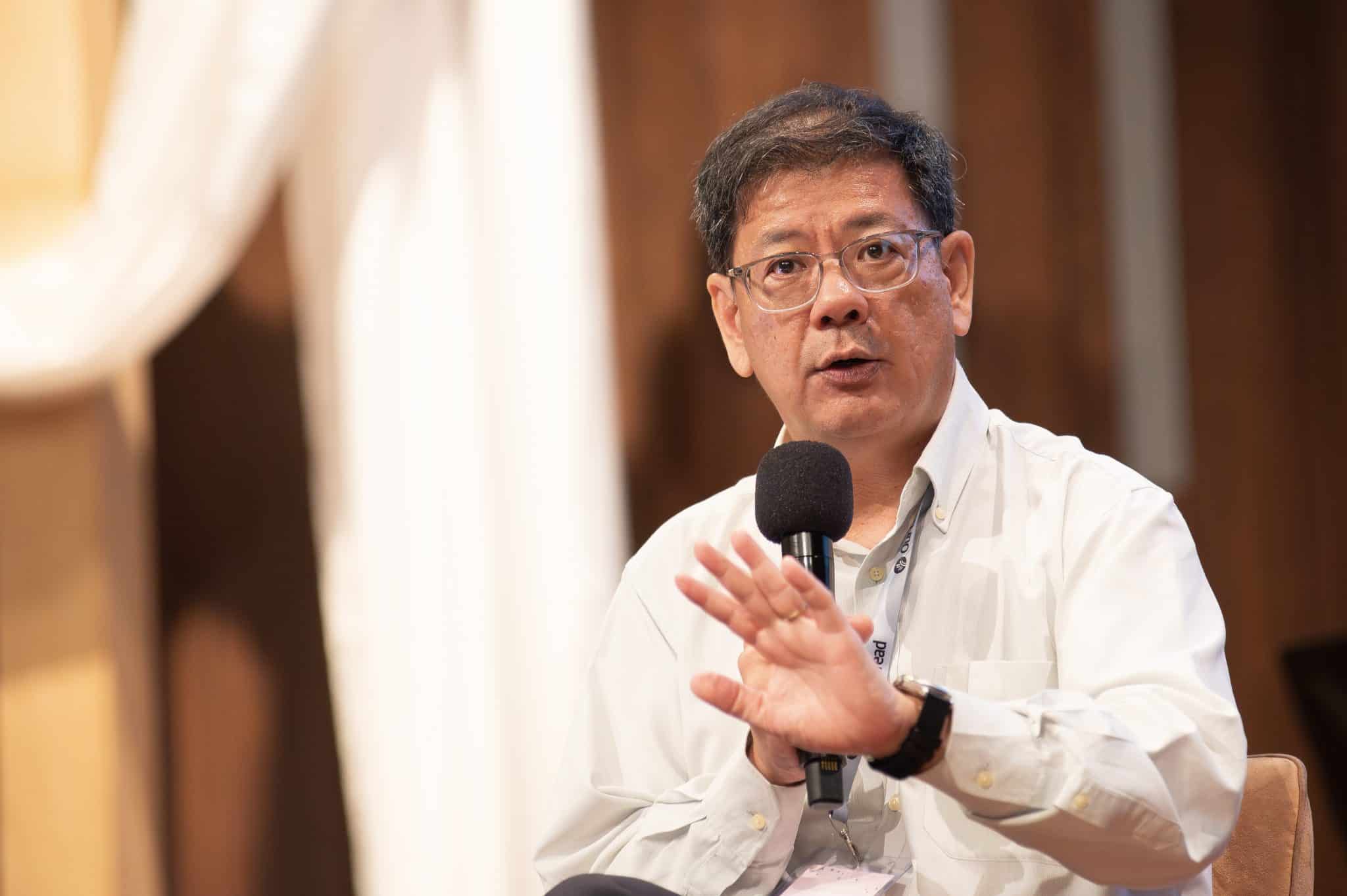Getting kids smart about money: How one start-up founder learnt to use his business for good
by Christine Leow // June 11, 2024, 11:53 am
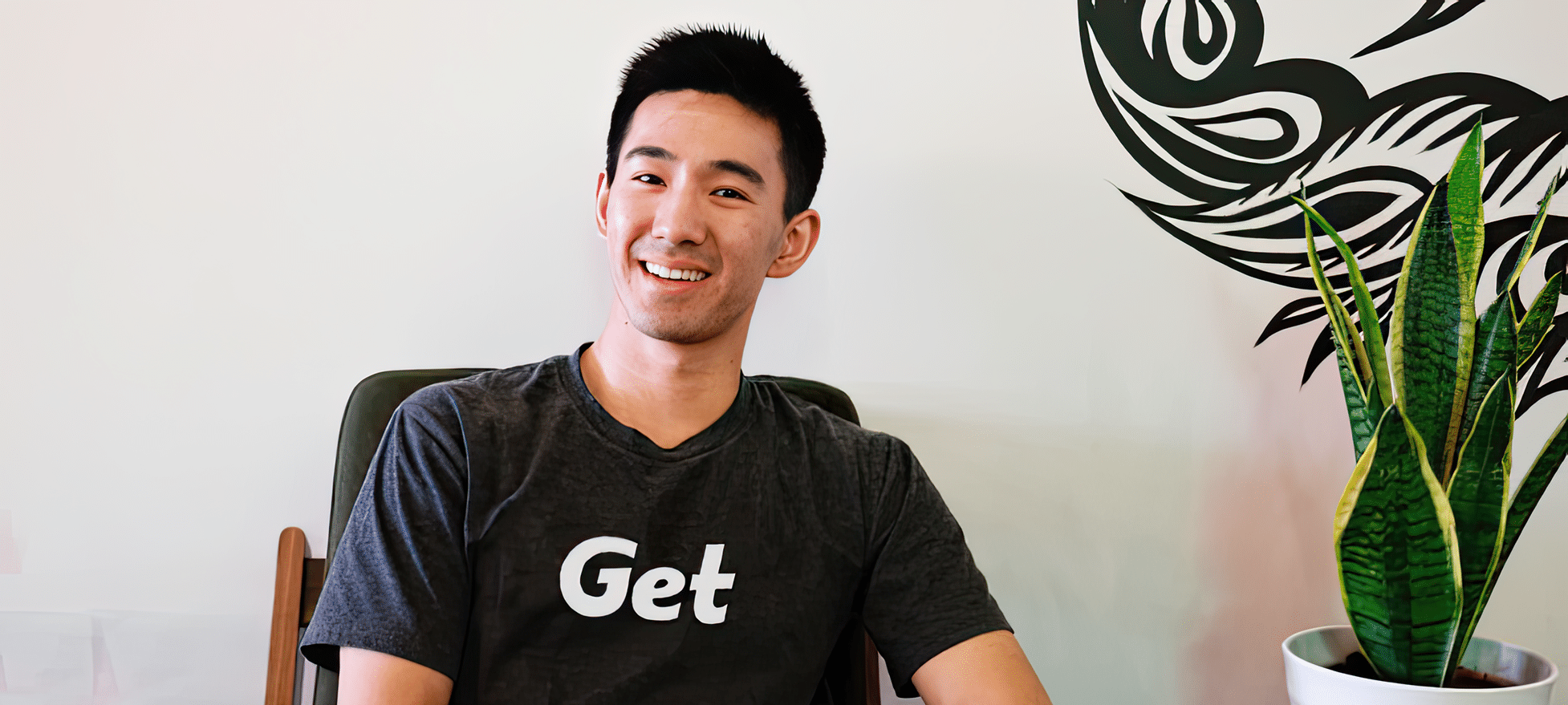
After a faith awakening, start-up founder Daniel Liang wanted to do more than run a business. He wanted to do it God's way. All photos courtesy of Daniel Liang.
Growing up with parents who were business owners, conversations around the dinner table for Daniel Liang often revolved around being prudent with money and the value of hard work.
“Even when my dad gave us pocket money, he would teach us to create a budget and to report back on how much we spent,” said Daniel, the founder of start-up GET that provides a payment platform to university clubs and societies.
“It was memorable because it created relevancy around the topic of money even at that early age.”
Suddenly, he found himself wondering: What is a life lived worth?
Daniel, who was born in Sydney, was grateful for this as he realised that it was not something he would have otherwise learnt.
“If you are born into a family that doesn’t teach financial literacy, then you will not be taught because this is not something they teach in school,” said Daniel, who was named one of Forbes 30 Under 30 in 2019.
“Even parents who want to equip their children may not do it. They have a heart for it but they have no content to impart to their kids.
“At the most, it comes in the form of nagging to turn off the lights. But that is just the tip of the iceberg.”
Raising a financially smarter generation
This is why Daniel, 29, wants to provide children with the right tools for financially literacy.
He recently added a new product to his start-up: A debit card and app, also called GET, that is made for children aged six to 18 to help them learn about money.
There are some 25,000 GET users in Singapore, where it was launched. Plans are afoot to take GET to the rest of Asia.

GET is a debit card and app created for children aged six to 18 to help them learn about money.
The app functions like a debit card for adults. It allows parents to upload money into the account for their children to use for payment, explained Daniel, who has been based in Singapore since the end of 2018.
“Children can manage their money independently, make connections between numbers and what their hearts desires, understand profit and loss, that they can’t use up all their pocket money by Tuesday.
“My tool aims to increase awareness of how money works. We want to partner parents to make it easier for them to raise a financially smarter generation. We act as another pair of eyes for parents.”
As with any new product, there were funding and software design challenges. But Daniel, who had raised millions before to fund his digital payment app, was up for that.
What he really grappled with this time around was something else: As a Christian, he wondered how he could incorporate his Christian faith into his desire to “build things from scratch”.
A faith awakening
Daniel had been baptised at 16 after his parents, who had emigrated from Shanghai to Sydney, became Christians. “A pastor visited my mother’s store and shared the Gospel with her,” Daniel recalled.
From that point, church-going became part of his weekly routine. But his faith then was only in its infancy, he admitted.
“I was so convicted I was on my knees praising God.”
In 2022, while in Indonesia working to bring GET to the country, he realised that he had been spending most of his time and effort at work.
Suddenly, he found himself wondering: What is a life lived worth?
“How many times a day do we think about the best inventors? No one really cares about them. If you are devoting yourself to that kind of work, then it is not very worth it,” he recalled thinking.
“It led me to ask the question: What were humans created for? Are humans a random biological phenomenon or were they created for a purpose by a Designer whom they are to recognise or adopt for their lives?”
He decided to research the origins of the universe, and began reading and talking to both atheists and Christians.
That months-long season of searching solidified his conviction that Jesus is “who He says He is”.
But it was more than just an intellectual exercise: “At one point, I was so convicted I was on my knees praising God.”
For the greater good
His renewed faith became pivotal to how Daniel viewed GET.
Even as a youth in Sydney, he always had a burden to nurture those who were younger, though he had not been the typical “goody-two-shoes” type.
“I felt this responsibility to steward the kids onto the right path. It was recognising that you are an influence to others,” he said.
As a young entrepreneur developing his payment platform, he always wondered: How will this progress society?
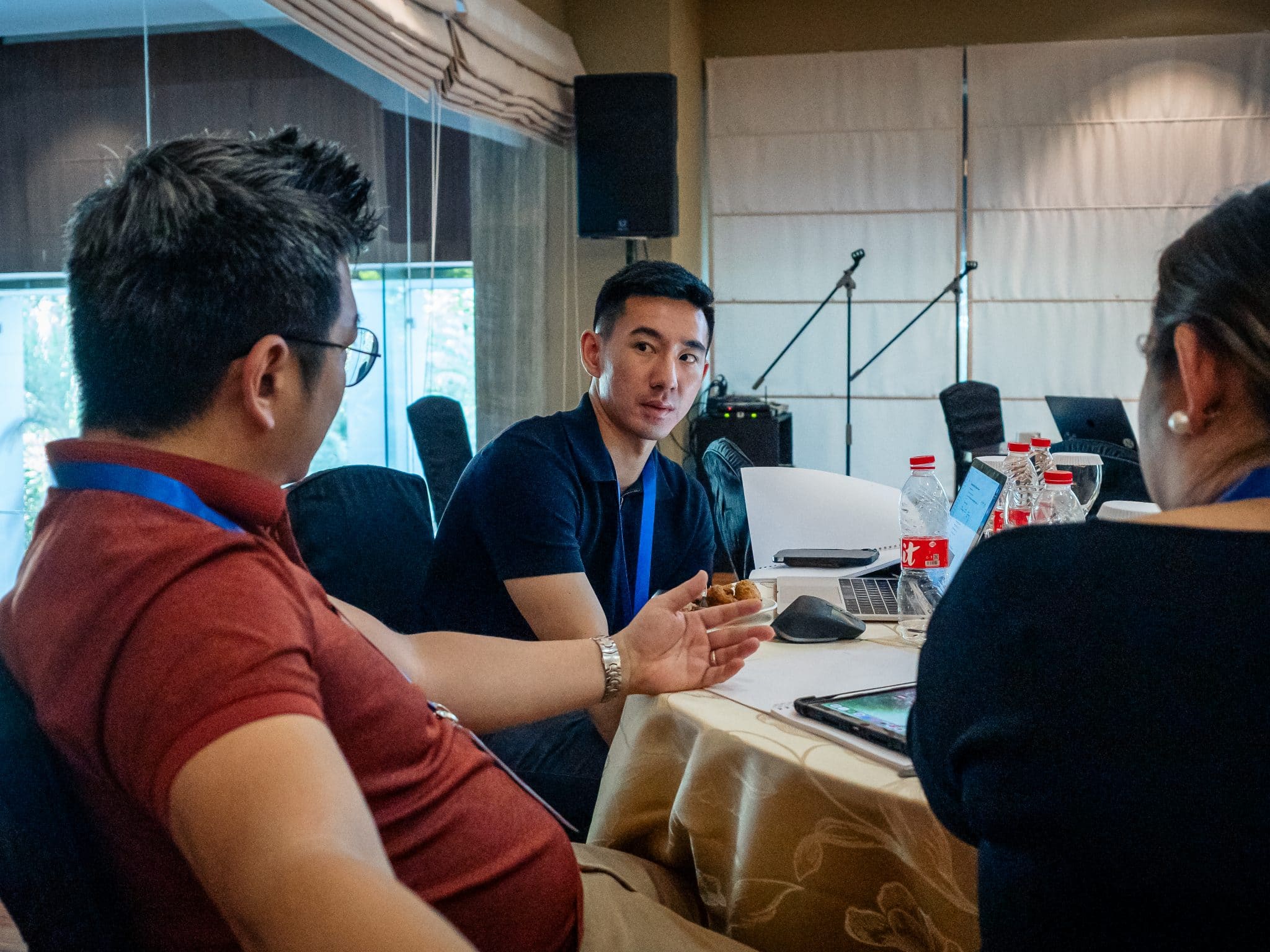
Daniel (centre) intends for GET to teach children how to be good stewards of money.
He later created the debit card and app for children with the firm belief that “everyone should have access to financial education and financial convenience”.
“It started as something that was cool. It would be fun to build a bank app from scratch and launch it. I fell in love with the idea of software as an equaliser.
“But after that whole reflection after we launched, I told everyone that GET is not (just) a fintech (product). It is an education company trying to solve an education question in society.
“The GET mission is to scale financial literacy for kids, teens and parents, providing them with a financial practice tool, connecting them with content and gamified solutions, because people learn experientially.”
Doing business God’s way
However, this broad mission for the greater good was not enough for Daniel. He wanted to know how to run his business as a Christian.
It was around then that Daniel’s co-founder, Liran Lv, introduced him to a monthly fellowship lunch with Christian business owners.
“Money is not (just) a digit. It is a vehicle to expand God’s kingdom.”
Among them was Chris Yeo, CEO of Doku and Director of Digital Mission Ventures (DMV).
DMV is a capital provider and accelerator that helps early-stage tech founders looking to use their business for Kingdom impact.
Chris invited Daniel to a three-day retreat in Batam, where participants learnt to adopt biblical principles in their businesses.
“They were the right mentors, the right people for me to learn from. A lot of them operate in a different way from the rest of the world when making business decisions,” said Daniel.
“They see things differently, they hear God. For them, it is not their business. It is God’s business. Money is not (just) a digit. It is a vehicle to expand God’s kingdom.”
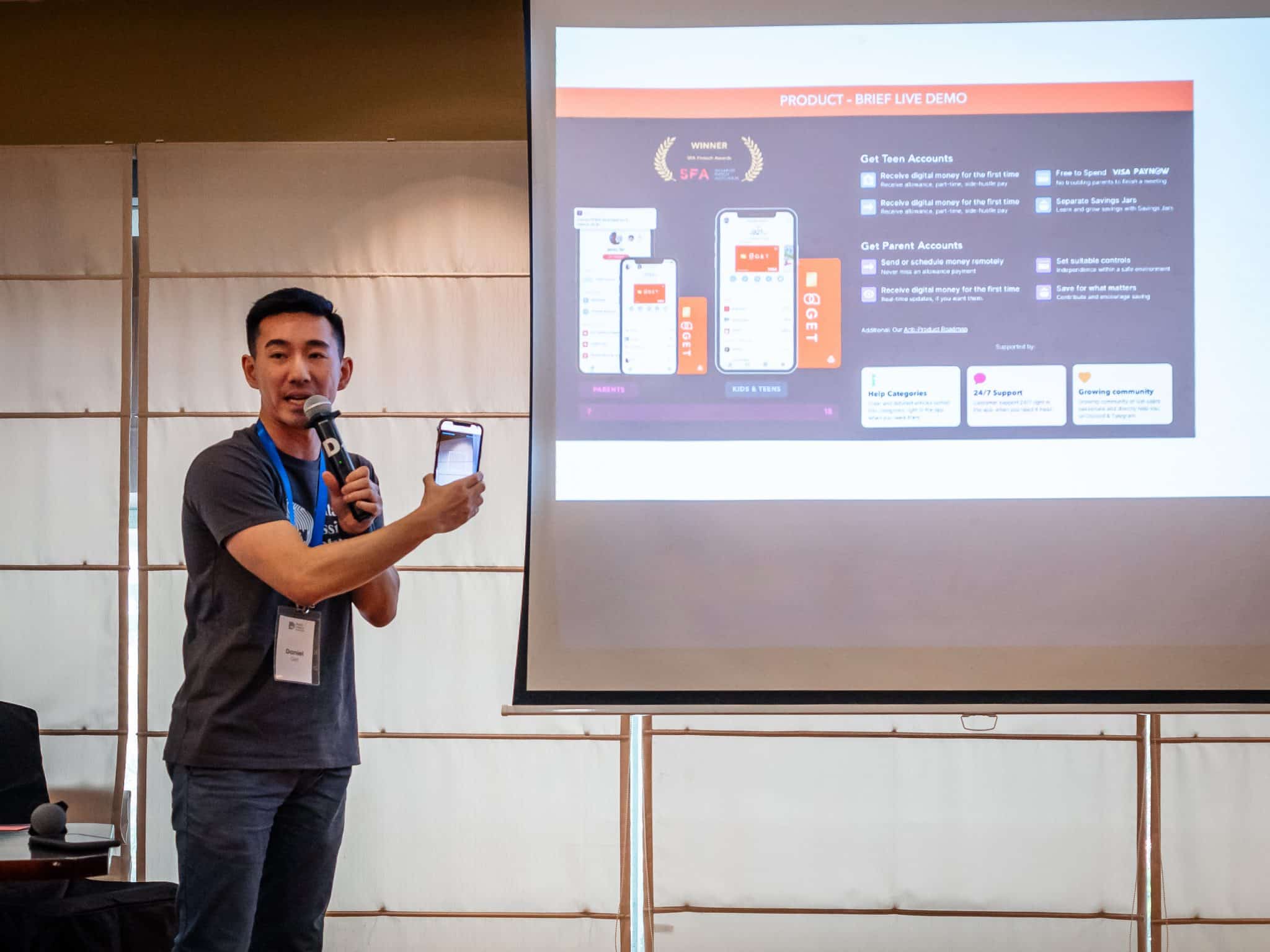
Meeting Christian start-up founders at DMV who were intentional about applying biblical principles to their businesses opened Daniel’s eyes to a new way of running his start-up.
From them, Daniel learnt not to be afraid to “tell people you are a Christian straight up”. This is why Daniel started discussing a verse a day with his co-founder who is also a believer.
From them, he learnt how to deal with investors and shareholders, valuing truth over securing funds and seeing his product as “a vehicle to love people”.
For them, he learnt what Christian leadership looks.
“My co-founder and I may bicker about who does what and how things work, but there is a lot of forgiveness. Forgiveness is very important,” said Daniel, who helms a team of six.
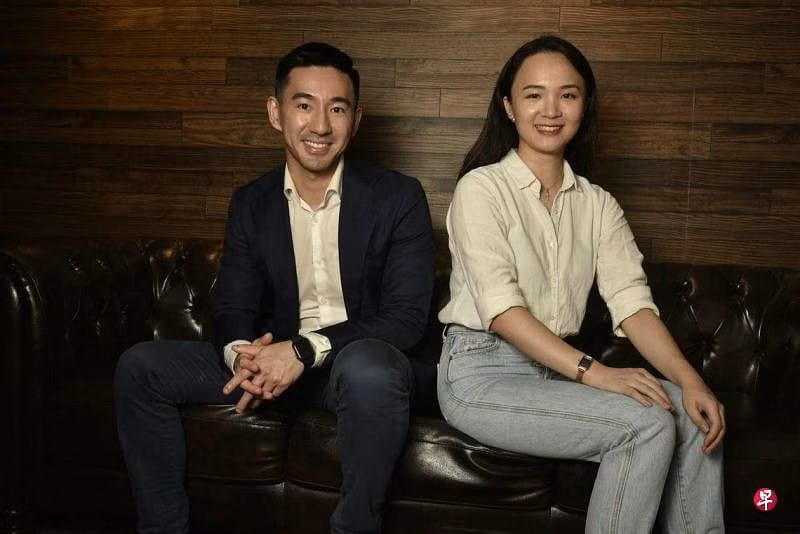
Learning about biblical principles in business has helped Daniel (left) manage not only his start-up but his relationship with his co-founder, Liran Lv (right).
“Recognising unity – that two are better than one but that people operate in different ways – has been really valuable,” he said, adding that he has grown to value humility as well.
“If it were not for Christ, our co-founder relationship would not be sustained.”
RELATED STORIES:
How a child-like prayer for ducks laid the faith foundation for an AI start-up
We are an independent, non-profit organisation that relies on the generosity of our readers, such as yourself, to continue serving the kingdom. Every dollar donated goes directly back into our editorial coverage.
Would you consider partnering with us in our kingdom work by supporting us financially, either as a one-off donation, or a recurring pledge?
Support Salt&Light